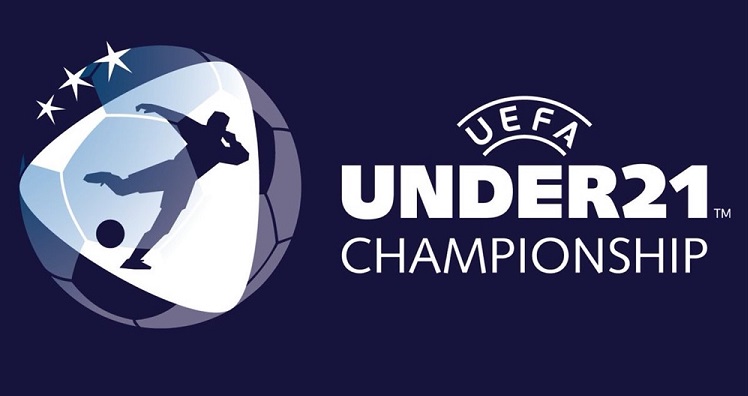The situation for Palestinians in the occupied territories calls for immediate action and international football may be the ideal stage…
It suits many in the game to proclaim the progressive nature of football, but in reality it is increasingly being used as a tool to mask other behaviour. Despite action around racism in football, FIFA has recently awarded Russia, where football is engulfed in racism scandal, the right to host the World Cup in 2018, bringing their true intentions into question. Equally, in three months, the forthcoming UEFA under 21 Championship to be held in Israel in June exposes the fallacies of this anti-racism rhetoric.
UEFA (the European Football Association) have recently marked ten years of collaboration with Football Against Racism in Europe (FARE), proudly stating that the organization has “used the massive public and commercial platform of Europe’s biggest football matches to press home a message of zero tolerance for any form of racism and discrimination, in favour of more respect for diversity”.
Racism can take many forms yet it is in its verbal utterances that it has rocked the ‘beautiful game’ in recent years, both on and off the field. Domestically this has been reflected in the high profile cases of former England captain John Terry and Uruguayian striker Luis Suarez both of whom were found guilty of racial abuse. Further afield, black team members of the England Under 21 side were subjected to monkey chants and missiles thrown by Serbian fans in Krusevac.
In the wake of this, the English Football Association led calls for the Serbian national team to be banned from the tournament. The resulting punishment issued by UEFA prompted the UK Minister for Sport Hugh Roberston to state his ‘disappointment’ adding that “racism is completely unacceptable and we need tough sanctions to help combat it.’
This very same England team will be heading to Israel in the summer to compete in the European Under 21 championships. They are due to play their match against Israel at the Teddy Stadium, the home of Beitar Jerusalem, Israeli’s most popular and controversial team. Following the arrival of two Chechen Muslim players to the club, supporters set fire to their administrative building. The arson attack was carried out by “La Familia”, a supporters group who have grown in strength in recent years and embody a political voice in Israeli society which is shaped by its Jewish fanaticism, aversion to Muslims and its penchant to treat Arabs and other ethnic minorities within the country as inferior.
This is not particularly new. A cursory glance at the last 60 years reveals the formation of a pervasive system of state policies that institutionalise separate and unequal treatment. Within Israel, Jews enjoy privileges entrenched in institutions such as law and education, while Arabs, at best, are condemned to the status of second-class citizens. In the occupied territories it is even worse. Checkpoints prevent free movement, new settlements erode the little remaining Palestinian land, and last week a bus company in the West Bank announced it would be running separate services for Palestinians and Israelis after Israeli security complaints.
Football is not immune from these harsh realities. Palestinians living on the other side of the Wall face roadblocks and hardship trying to play the game. Since February last year two footballers with the club al-Amari have been detained in Israel without charge or trial. This is after the high profile case of Muhmoud Al-Sarsak, a Palestinian national footballer jailed for 3 years without charge or trial and only recently being released after a 92-day hunger strike. Olympic squad goalkeeper Omar Abu Rois and Ramallah player Mohammed Nimr are also being held in Israeli prisons without charge. On 10 November 2012 the Israeli army bombed a sports stadium in Gaza, killing four young people who were playing football.
The aerial bombardment of November last year prompted over fifty professional footballers to sign a petition headed by Frederic Kanuote that declared that hosting the tournament in Israel would be seen ‘as a reward for actions that are contrary to sporting values.’ This is a significant achievement particularly given the sheltered existence of the modern day footballer, with agents and advisers often encouraging them to avoid ‘politics’ and focus upon their commercial potential.
It is important to draw from historical lessons in our assessment of this situation. The Nobel Peace Prize laureate Desmond Tutu describes the checkpoints that dictate everyday life for Palestinians as a reminder of a South Africa that thankfully no longer exists. The documentary film Fair Play released in 2010 paints a compelling picture of the sports boycott of South Africa that challenged the regime on an international stage whilst also hitting at the heart of white South African culture. The arena of football, as Israel’s national sport, can be targeted to further delegitimise the regime, with a boycott contributing to the principled stance of high-profile Europe-based footballers.
Some criticise such an idea as targeting innocent Israeli citizens. Rather, it is the institutions that main the system of occupation and segregation that are exposed by such high-profile action, as in the case of the South African anti-Apartheid movement. Others suggest the boycott tactic is merely symbolic and ineffective. However, the sports boycott’s public and international approach makes it capable of changing attitudes, building bridges towards a common vision of justice and equality centred upon an alternative relationship in the land of Israel-Palestine.
The growing calls to boycott the UEFA European Under 21 championships need to be acted upon. As the reality of Apartheid continues on a daily basis, the time has come for UEFA to decide if it is an organisation standing for ‘zero tolerance for any form of racism and discrimination’, or is complicit in the systematic persecution of a people.









